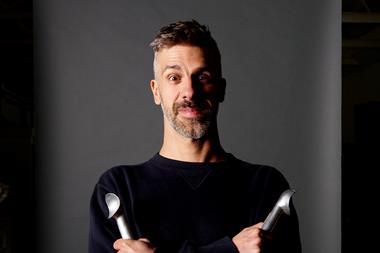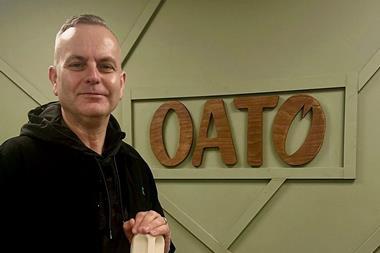I know we're in the middle of a credit crunch, but let's suppose you've got a spare £100 to treat yourself and your other half. What would you spend it on to gain the most satisfaction and happiness? Something experiential like a romantic meal for two at a favourite restaurant, or something material like a set of nesting tables in scrubbed pine? I think you've guessed the answer.
For most people, long-term happiness is more likely to be achieved by spending money on an experience rather than a possession. As a Manchester United supporter, I recently took my son to the Champions League final in Rome and enjoyed just about every minute of it - with the possible exception of the 11th and 57th minutes when Barcelona scored. But even the result didn't spoil the overall experience of our short break in Rome.
Research by Leonardo Nicolao at the University of Texas confirms the theory that for long-term happiness, experiences tend to beat possessions. That's because, over time, we only recall the happy memories of the event, like visiting the Coliseum and the Trevi Fountain, and we forget all about the two lucky goals scored against the run of play. We may even embellish the memory to make it better. For instance, we remember all those hot summers when we were kids - even though we probably only really had one or two. And experiences that are free in these cash-strapped times are likely to bring you even greater long-term happiness.
But what if the romantic meal for two turns out to be more like a scene from Ramsay's Kitchen Nightmares? Naturally, it doesn't have to involve a crazy, knife-wielding chef spitting a tirade of four-letter expletives - maybe just a disappointing salad Niçoise. Well, according to the researchers who measured people's happiness over a period of time, they found that those who had made a small but bad material purchase were able to forget about it more quickly than those who made a bad experiential purchase. I'm not sure exactly what this proves but I think my wife has a wardrobe full of hardly worn clothes that supports the finding. In fact, the act of shopping for things that you don't really need also proves the theory that it is the experience we enjoy, rather than the material gain.
However, there's always an exception to the rule. So if you and your loved one find yourself sharing a bottle of fine wine on a hot summer evening and reminiscing with great fondness about the time you bought that cordless Morphy Richards steam iron, or the years of reliable service you've enjoyed from your Hotpoint twin tub, be sure to get in touch. Just not with me.
Philip Hesketh is a professional speaker on the psychology of persuasion and author of Life's a Game so Fix the Odds.
For most people, long-term happiness is more likely to be achieved by spending money on an experience rather than a possession. As a Manchester United supporter, I recently took my son to the Champions League final in Rome and enjoyed just about every minute of it - with the possible exception of the 11th and 57th minutes when Barcelona scored. But even the result didn't spoil the overall experience of our short break in Rome.
Research by Leonardo Nicolao at the University of Texas confirms the theory that for long-term happiness, experiences tend to beat possessions. That's because, over time, we only recall the happy memories of the event, like visiting the Coliseum and the Trevi Fountain, and we forget all about the two lucky goals scored against the run of play. We may even embellish the memory to make it better. For instance, we remember all those hot summers when we were kids - even though we probably only really had one or two. And experiences that are free in these cash-strapped times are likely to bring you even greater long-term happiness.
But what if the romantic meal for two turns out to be more like a scene from Ramsay's Kitchen Nightmares? Naturally, it doesn't have to involve a crazy, knife-wielding chef spitting a tirade of four-letter expletives - maybe just a disappointing salad Niçoise. Well, according to the researchers who measured people's happiness over a period of time, they found that those who had made a small but bad material purchase were able to forget about it more quickly than those who made a bad experiential purchase. I'm not sure exactly what this proves but I think my wife has a wardrobe full of hardly worn clothes that supports the finding. In fact, the act of shopping for things that you don't really need also proves the theory that it is the experience we enjoy, rather than the material gain.
However, there's always an exception to the rule. So if you and your loved one find yourself sharing a bottle of fine wine on a hot summer evening and reminiscing with great fondness about the time you bought that cordless Morphy Richards steam iron, or the years of reliable service you've enjoyed from your Hotpoint twin tub, be sure to get in touch. Just not with me.
Philip Hesketh is a professional speaker on the psychology of persuasion and author of Life's a Game so Fix the Odds.

















No comments yet